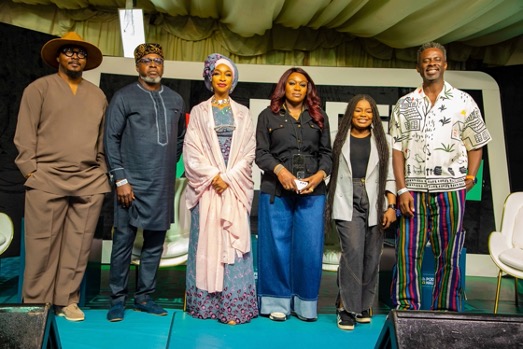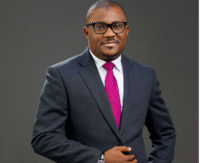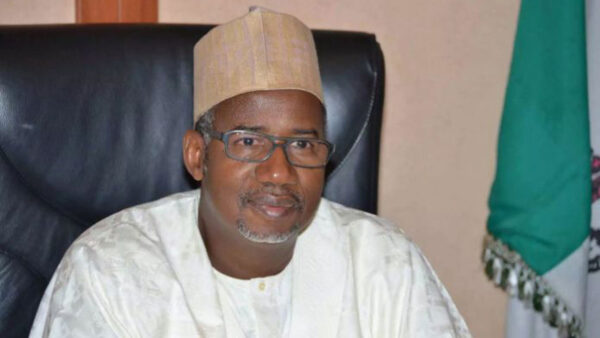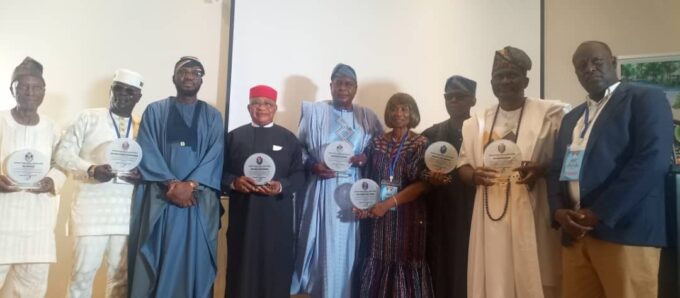Abimbola Ayoola stands at the forefront of a global movement redefining how medical technology serves humanity, writes Sunday Ehigiator
When Abimbola Ayoola speaks about her work, her words carry a deliberate calm, born from a deep understanding that precision and purpose can save lives.
As a Principal Quality Engineer at Medtronic, one of the world’s leading medical technology companies, her work intersects science, leadership, and human compassion. For her, quality is not just a professional metric; it’s a moral imperative.
“Keeping the patient at the centre of everything I do has always been my guiding principle,” she says while speaking with THISDAY. “It ensures that my work aligns with Medtronic’s mission to alleviate pain, restore health, and extend life.”
Today, Abimbola leads a team responsible for ensuring that every medical device leaving Medtronic’s facilities meets the highest standards of safety and reliability. From cardiac implants to diabetic care technologies, her oversight touches countless lives across continents.
From Ibadan to the World
Abimbola’s journey began thousands of miles away from Medtronic’s global headquarters, in Nigeria, where she studied Zoology at the University of Ibadan.
Like many bright minds of her generation, she grew up with a curiosity for how the body works and a fascination with science’s power to heal. But her ambitions extended beyond traditional biological studies. She was drawn to the tangible impact of technology on medicine; how innovation could not only explain life but also improve it.
That quest led her to the University of Bridgeport in the United States, where she earned a Master’s degree in Biomedical Engineering. The transition from zoology to biomedical engineering was not merely academic; it was transformative. It positioned her at the very confluence of human biology, mechanical precision, and computational design; the core of modern healthcare innovation.
Abimbola often describes that period as one of both challenge and revelation. “Moving to a new country, adapting to a different academic culture, and embracing a field that merged multiple disciplines; all of it taught me how to learn fast, connect dots, and stay adaptable,” she recalls.
She would later go on to earn certifications that reflected not only her technical expertise but her commitment to excellence: Project Management Professional (PMP®) and Certified Quality Engineer (ASQ). These qualifications became the pillars of her evolving identity, not just as an engineer, but as a systems thinker and leader.
Climbing the Quality Ladder
In the world of medical devices, quality assurance is not a background function; it is the backbone of trust. A single oversight can have life-or-death consequences. For Abimbola, that reality has shaped every decision, every process, and every leadership philosophy she has embraced.
At Medtronic, she has led multimillion-dollar product launches, spearheaded cross-functional initiatives, and driven improvements that significantly reduced manufacturing errors. But what stands out is how she approaches complexity; not as a barrier, but as an opportunity to build stronger systems. One of her most challenging assignments involved a defective product that seemed minor at first glance. What began as a simple nonconformance quickly escalated into a multi-site quality crisis.
“We discovered that the issue had potential implications across multiple product lines,” she recalls. “It demanded rapid coordination, structured root cause analysis, and transparent communication with global teams and regulators.”
Abimbola guided her team through the crisis by leveraging tools such as Fishbone Diagrams, 5 Whys, and Failure Mode and Effects Analysis (FMEA). Beyond the technical discipline, her leadership was what kept the process intact. She made sure that no team member felt isolated or blamed. Instead, she emphasised collective accountability.
“Quality challenges aren’t just technical,” she explains. “They’re also about collaboration, leadership, and making patient-centric decisions under pressure.”
The issue was ultimately resolved with zero patient harm; a testament not just to her technical mastery but to her calm, strategic leadership.
Balancing Leadership and Technical Mastery
One of the toughest balancing acts in Abimbola’s career has been marrying the demands of leadership with the rigours of engineering precision. As a Principal Quality Engineer, she must make data-driven decisions while inspiring her team to see beyond checklists and compliance.
“My technical background allows me to deeply understand the product, identify potential risks, and make informed decisions,” she says. “But leadership is about empowering others, creating a culture where quality is everyone’s responsibility.”
To achieve this, she emphasises three pillars: trust, accountability, and collaboration. Her teams are encouraged to speak up, challenge assumptions, and think critically about risk. She describes quality as a shared mindset rather than a department, a philosophy that integrates seamlessly with Medtronic’s mission-driven culture.
Her leadership style has proven especially critical during high-pressure product development cycles. “In those moments,” she says, “you remind the team why we’re here, to deliver safe, effective products that improve patients’ lives. That purpose keeps everyone grounded.”
Engineering that Touches Lives
For Abimbola, biomedical engineering is more than equations, protocols, and regulatory codes. It is, as she puts it, “the intersection of innovation and empathy.”
She recounts a particularly fulfilling experience leading the quality oversight for a next-generation ENT (Ear, Nose, and Throat) device. The product was on the verge of launch when her team uncovered a component variability that posed potential performance risks.
“Delaying the launch would have affected thousands of patients,” she says. “But releasing without resolving the issue was not an option.”
Her team moved swiftly, tracing the problem to an upstream supplier process. Through coordinated root cause analysis and supplier collaboration, they implemented corrective actions without derailing the timeline. The launch went ahead safely and successfully.
That episode encapsulated her philosophy: innovation must serve humanity, not the other way around. “The power of biomedical engineering lies in combining technical excellence with empathy,” she reflects. “It’s about delivering safe, effective products on time, without compromising the patient.”
Women in STEM
As a Nigerian woman thriving in a global STEM industry, Abimbola’s path has not been without challenges. The biomedical field remains male-dominated, and breaking into leadership positions demands more than technical skill; it requires strategic visibility, resilience, and confidence.
Abimbola acknowledges this reality with candour. “I’ve learned to be intentional about building strong networks and seeking mentorship,” she says. “I especially look for female mentors who’ve walked similar paths. Their guidance and perspective are invaluable.”
She actively participates in diversity and inclusion programs within Medtronic and beyond, supporting initiatives that empower women and underrepresented minorities in STEM. For her, inclusion isn’t a slogan; it’s a leadership responsibility.
“In every room I walk into, I view myself and everyone else as equal,” she says. “I don’t allow gender to define my confidence or limit my voice.”
Her approach combines assertiveness with authenticity, qualities that have helped her navigate complex corporate structures without losing her sense of purpose. She is equally passionate about mentoring young women in engineering, reminding them that confidence is as critical as competence.
“Be bold, take risks, and step outside your comfort zone,” she often tells mentees. “You may not have everything figured out, but action creates momentum.”
AI, Robotics, and the Future of MedTech
As the medical technology industry evolves, so too does the definition of quality. Abi stands at the forefront of that transformation, championing the integration of AI and robotics into quality systems.
“AI allows us to analyse large volumes of data, detect patterns, and predict quality issues before they happen,” she explains. “It shifts quality from being reactive to proactive.”
Robotics, on the other hand, improves precision and reduces human error in manufacturing. Together, these technologies are reshaping how companies like Medtronic ensure reliability at scale.
For Abimbola, these innovations don’t replace human judgment; they enhance it. “Automation increases consistency,” she says, “but the human element, our ability to empathise, lead, and make ethical decisions, remains irreplaceable.”
Global Collaboration, Local Insight
Having worked across multiple teams and geographies, Abimbola understands the nuances of global collaboration. Her projects often require alignment across time zones, functions, and regulatory frameworks, from the U.S. to Asia and beyond.
These experiences, she says, have reinforced her belief in the power of diversity. “True collaboration goes beyond shared responsibilities. It’s about building mutual understanding, trust, and a shared commitment to excellence,” she noted.
She credits much of her success to cultural empathy, the ability to listen, adapt, and communicate across differences. “Working globally taught me that excellence must be both universal and contextual. You must meet global quality standards while respecting local realities,” she says.
In her leadership practice, empathy is not just emotional intelligence; it’s a strategic asset. It builds trust and unlocks innovation, especially in teams spread across continents.
Curiosity as a Compass
Every leader has formative moments, turning points that shape their philosophy. For Abimbola, one such moment came early in her career when she was assigned to a validation project she didn’t fully understand.
“I didn’t have all the answers,” she admits. “But I made a conscious decision to go beyond checking boxes.”
Instead of executing tasks mechanically, she asked questions to senior engineers, operators, and quality specialists. She wanted to understand the “why” behind every requirement. That curiosity not only deepened her technical knowledge but also revealed the power of collaboration and documentation.
“That experience taught me that success isn’t about knowing everything upfront. It’s about being willing to learn, to ask, and to grow,” she says.
It also solidified her respect for process discipline, a cornerstone of quality leadership. To this day, she encourages her teams to embrace curiosity as a professional virtue.
Authentic Leadership in the 21st Century
Leadership, for Abimbola, is not about authority; it’s about authenticity. “In today’s workplace, people follow leaders they can relate to and trust. That trust comes from being real, being consistent, and leading with integrity,” she says.
Her definition of authentic leadership includes three commitments: transparency, empathy, and alignment with values. “I try to lead with clarity; explaining not just what decisions are made, but why,” she says. “When people understand the ‘why,’ they engage more deeply.”
In a multicultural, fast-paced company like Medtronic, authenticity bridges differences and fosters inclusion. It creates an environment where team members feel safe to express ideas, challenge norms, and innovate fearlessly.
Despite her demanding schedule, Abimbola is intentional about balance. For her, wellness is not a luxury; it’s a leadership tool. “Balance isn’t about equal time,” she says. “It’s about being intentional with the time you do have.”
Her daily routine includes physical fitness; she’s an avid gym-goer, and reading. She gravitates toward books on finance, leadership, and mindset. “Physical activity clears my mind and reduces stress,” she explains. “Reading keeps me grounded and constantly learning.”
This balance, she believes, is what sustains excellence. “Investing in yourself outside of work makes you more effective inside of work,” she says.
Giving Back
As her influence grows, Abimbola is increasingly focused on legacy; not in titles or accolades, but in the lives she can touch. She sees mentorship as her most powerful form of impact.
“I want to help build the next generation of leaders,” she says. “Not just by sharing technical knowledge, but by teaching resilience, communication, and confidence.”
She envisions a future where African and female professionals are not just participants but pioneers in global STEM industries. “Being Nigerian has given me resilience and creativity,” she says proudly. “Don’t shrink yourself; bring that full identity into every room you enter.”
As Abimbola reflects on her journey, from a curious zoology student in Ibadan to a global quality leader at Medtronic, one theme runs through every chapter: purpose.
“Science and leadership, when combined with empathy, can transform lives,” she says. “That’s what drives me every day.”
Looking ahead, she hopes to expand her leadership influence across regions and industries, building inclusive teams that embody innovation and integrity. Her ultimate goal is to leave behind a culture of excellence rooted in empathy; one that continues to shape safer, smarter, and more human-centred healthcare long after her tenure.
“Leadership is about service. If, through my work, I can help people grow, make better decisions, and bring healing to others, then I’ve fulfilled my purpose,” she concludes.


















Leave a comment